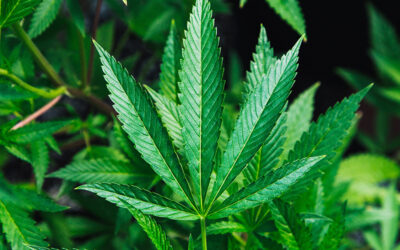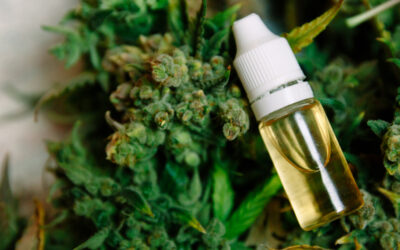Kannalife Sciences, Inc., a Phyto-Medical Company™ has found through its research that KLS-13019 is 50x More Potent and Over 400-Fold Safer Than CBD
SAN DIEGO, CA – February 18, 2016 – Medical Marijuana, Inc. (OTC Pink: MJNA) is pleased to announce that the Company’s portfolio investment company, Kannalife Sciences, Inc. (“Kannalife”), has made a major breakthrough in the field for cannabinoid therapeutics with the publication of the body of science behind the new cannabidiol (CBD)-like molecule KLS-13019. The abstract, as well as the purchase of the full version of the publication on the “Discovery of KLS-13019” is available online at: http://pubs.acs.org/doi/abs/10.1021/acsmedchemlett.6b00009.
“We are very excited to see the progress being made at Kannalife toward their pharmaceutical development of cannabinoid-derived therapeutic agents,” states Dr. Stuart W. Titus, Chief Executive Officer of Medical Marijuana, Inc. “With the development of KLS-13019, there is potential for orphan drug designation in Grade 3 hepatic encephalopathy (HE). Pre-clinical studies have led Kannalife’s scientific team to believe KLS-13019 may successfully provide answers for late-stage HE patients.”
Through pre-clinical testing and pharmacokinetic (PK) studies, Kannalife’s findings indicate improvement over CBD’s role as a neuroprotectant in both increased potency and reduction of toxicity. Side-by-side comparisons between CBD and KLS-13019 have also shown that KLS-13019 has marked improvements over CBD in oral bioavailability, CNS penetration, blood-plasma concentrations, and cognitive improvement in pilot murine behavioral models. The published findings explain that KLS-13019 was 50-fold more potent and >400-fold safer than cannabidiol (CBD) and exhibited an improved in vitro profile consistent with improved oral bioavailability.
Titus continues, “The potential for KLS-13019 and its significance stands beyond its intended target of ameliorating neurodegeneration brought on by ethanol and ammonium toxicity but also its potential in repairing liver damage brought on by cirrhosis. A successful clinical trial may also lead to other important areas such as the use of KLS-13019 as a possible adjuvant as a long-term solution for drug-induced liver disease.”
Drug-induced liver toxicity (DILI) is a common cause of liver injury. It accounts for approximately one-half of the cases of acute liver failure and mimics all forms of acute and chronic liver disease. An estimated 1,000 drugs have been implicated in causing liver disease on greater than one occasion.
Although, with the exception of rare cases, drug-induced liver injury subsides after cessation of treatment with the drug, this represents an important diagnostic and therapeutic challenge for physicians.
About Kannalife Sciences, Inc.
Kannalife Sciences, Inc. is a phyto-medical company involved in the research and development of novel therapeutic agents designed to be neuroprotectants and immuno-modulators. Kannalife is currently conducting research and development at the Pennsylvania Biotechnology Center in Doylestown, PA, for target drug candidates to treat Hepatic Encephalopathy (“HE”) and Chronic Traumatic Encephalopathy (“CTE”). HE and CTE are oxidative stress related diseases that affect cognitive and behavioral functions. For more information, visit: www.Kannalife.com.
About Medical Marijuana Inc.
The mission of Medical Marijuana, Inc. (OTC Pink: MJNA) is to be the premier cannabis and hemp industry innovator, leveraging our team of professionals to source, evaluate and purchase value-added companies and products, while allowing them to keep their integrity and entrepreneurial spirit. We strive to create awareness within our industry, develop environmentally-friendly, economically sustainable businesses, while increasing shareholder value.
FOOD AND DRUG ADMINISTRATION (FDA) DISCLOSURE
These statements have not been evaluated by the FDA and are not intended to diagnose, treat or cure any disease.
FORWARD-LOOKING DISCLAIMER
This press release may contain certain forward-looking statements and information, as defined within the meaning of Section 27A of the Securities Act of 1933 and Section 21E of the Securities Exchange Act of 1934, and is subject to the Safe Harbor created by those sections. This material contains statements about expected future events and/or financial results that are forward-looking in nature and subject to risks and uncertainties. Such forward-looking statements by definition involve risks, uncertainties and other factors, which may cause the actual results, performance or achievements of Medical Marijuana, Inc. to be materially different from the statements made herein.
LEGAL DISCLOSURE
Medical Marijuana Inc. does not sell or distribute any products that are in violation of the United States Controlled Substances Act (US.CSA). These companies do grow, sell, and distribute hemp-based products and are involved with the federally legal distribution of medical marijuana-based products within certain international markets. Cannabidiol is a natural constituent of hemp oil.






